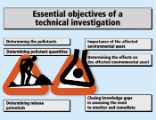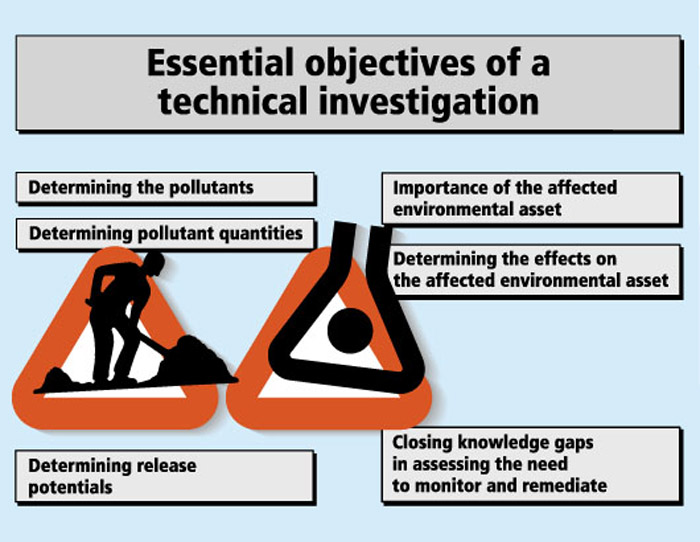The goal of the technical investigation is to supplement already-known details with measurements enabling the authorities to judge whether the site needs to be remediated or monitored, or whether additional investigations can, in fact, be considered superfluous. But the objective isn't to produce a technically and financially expensive detailed risk assessment of the site; this is the job of any later detailed investigation.
Efficiency is the watchword and uppermost principle in the investigative efforts. A site need not be investigated for every one of the pollutants mentioned in the Contaminated Site Ordinance; the knowledge yielded by the historical investigation helps to focus efforts here. In most cases a few specific parameters will need to be assessed. It is appropriate, for example, to inspect a target/shooting range for lead or a dry cleaning operation for chlorinated solvents. But it is also possible that the historical investigation has supplied sufficient information on a site to clarify the need for monitoring or remediation. In such cases a technical investigation is of course unnecessary.







